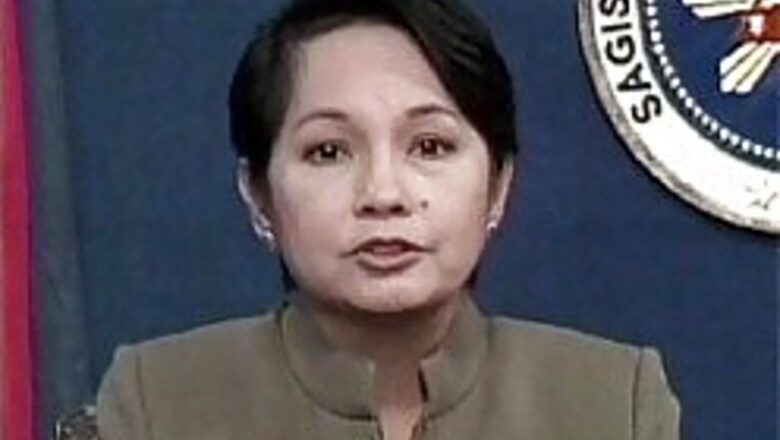
views
Manila: Philippines President Gloria Macapagal Arroyo declared a national emergency on Friday to quell an alleged coup plot by military officers, but her opponents defied a ban on protests and demanded her resignation.
Arroyo ordered the arrest of the alleged conspirators, saying there was a "tactical alliance" between right-wing and communist forces to overthrow her and "create an unconstitutional regime."
Military officials said rebel officers were planning to call for her ouster at rallies on Friday marking the 20th anniversary of the February 25, 1986 "People Power" revolution that restored democracy to the Southeast Asian nation.
In pre-emptive moves, protests were banned on Friday and three officers from elite security units led by US-trained special forces officer Brigadier General Danilo Lim were relieved of their commands before dawn and placed under investigation.
A presidential aide said at least eight other people were being sought in connection with the alleged conspiracy.
"The government has crushed this illegal action," Arroyo said in a televised address, calling for calm as troops sealed off the presidential palace.
"As commander-in-chief, I control the situation," said Arroyo, who has survived two violent attempts to oust her since she was installed as president after a military mutiny brought down her predecessor Joseph Estrada in 2001.
A military statement said Lim, the commander of the army's elite Scout Rangers, had been taken into custody along with Chief Superintendent Marcelino Franco, the head of the national police Special Action Force.
Lim was involved in a bloody 1989 coup attempt but was pardoned as part of efforts to heal divisions in the 120,000-strong armed forces.
Lawyers said the Arroyo proclamation was not equivalent to martial law and essentially allowed the president to mobilize the military to crush a rebellion or take over utilities.
The normal judicial system remained in place.
But broadcasters were told by telecommunication regulators to exercise restraint and avoid giving support to armed groups calling for Arroyo's ouster by force, a presidential aide said.
One of her most prominent critics, former president Corazon Aquino, defied the ban on protests and led a march by 5,000 people in Manila's business district to urge Arroyo to resign.
Police allowed it to proceed after using water cannon and truncheons to stop another rally elsewhere in the city.
The US government urged Filipinos to reject violence and said the Arroyo government should respect civil liberties and the rule of law.
It also warned Americans living in this former US colony to ensure their personal safety "during these uncertain times."
Hong Kong and Australia urged their citizens to exercise caution when travelling to the Philippines.
PAGE_BREAK
Share prices fell 1.02 per cent and the peso weakened after the address, but the capital of the largely Roman Catholic nation appeared calm.
Archbishop of Manila Gaudencio Rosales, recently made a cardinal by the Vatican, warned that "it doesn't look good if our government declares a state of emergency" and called for a dialogue.
The latest crisis overshadowed celebrations of the 20th anniversary of the 1986 military uprising that toppled the late martial-law ruler Ferdinand Marcos and helped inspire pro-democracy movements worldwide.
Arroyo herself came to power unconventionally in January 2001 when, as vice president, she was sworn in after a military mutiny brought down President Joseph Estrada, who is on trial for corruption.
Arroyo survived a military mutiny in July 2003 and her victory in the May 2004 presidential election, giving her a six-year mandate, was tainted by charges of fraud.
In her emergency proclamation, Arroyo said communist guerrillas and right-wing "military adventurists" were "now in a tactical alliance and engaged in a concerted and systematic conspiracy" to oust her.












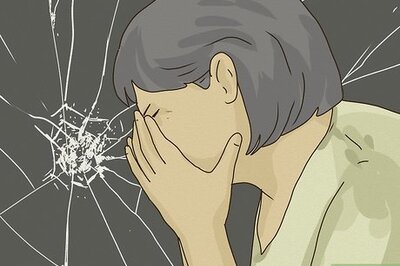

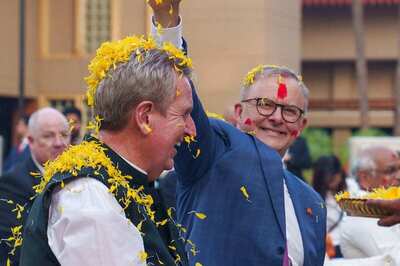


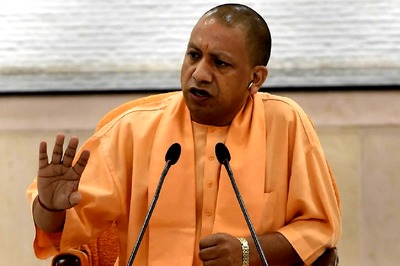

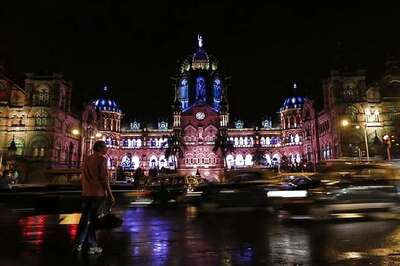
Comments
0 comment